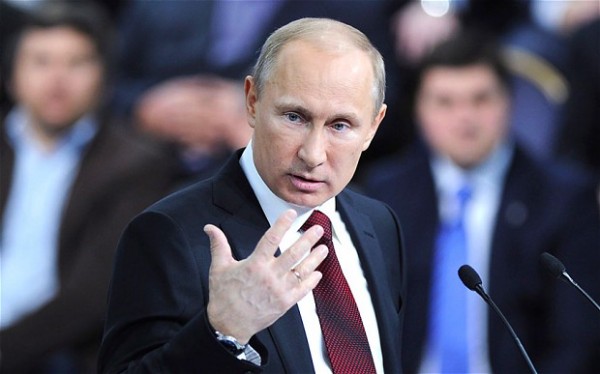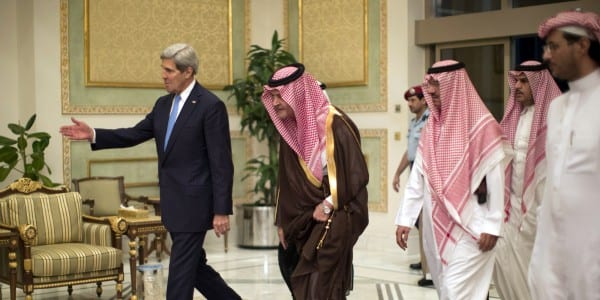Russia’s Vulnerability invites attack. It must be reversed at the deepest level if the nation is to survive.
Russia’s Vulnerability to EU/USA Sanctions and Military Encroachments
From 1990 to 1999, over 6 million Russian citizens died prematurely as a result of the catastrophic collapse of the economy; life expectancy for males declined from 67 years during the Soviet era to 55 years during the Yeltsin period.
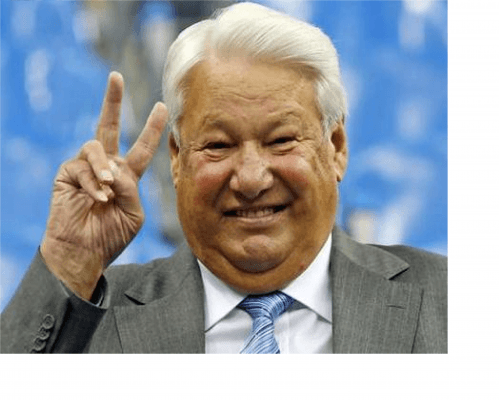
Yeltsin: He opened the gates to Western carpetbaggers and the internal capitalist mafia. Fondly remembered by the West and the Fifth Columnists as a golden age.
(Original draft 11.08.2014 :: Analysis)
JAMES PETRAS
An indispensable daily read
[box type=”bio”] Introduction: The US-EU sponsored coup in the Ukraine and its conversion from a stable Russian trading partner, to a devastated EU economic client and NATO launch pad, as well as the subsequent economic sanctions against Russia for supporting the Russian ethnic majority in the Donbas region and Crimea, illustrate the dangerous vulnerability of the Russian economy and state.[/box]
![]()
[dropcap]The current effort[/dropcap] to increase Russia’s national security and economic viability in the face of these challenges requires a critical analysis of the policies and structures emerging in the post-Soviet era.
Pillage as Privatization
Over the past quarter century, several trillion dollars worth of public property in every sector of the Russian economy was illegally transferred or violently seized by gangster-oligarchs acting through armed gangs, especially during its ‘transition to capitalism’.
From 1990 to 1999, over 6 million Russian citizens died prematurely as a result of the catastrophic collapse of the economy; life expectancy for males declined from 67 years during the Soviet era to 55 year during the Yeltsin period. Russia’s GNP declined sixty percent – a historic first for a country not at war. Following Yeltsin’s violent seizure of power and his bombing of the Russian parliament, the regime proceeded to ‘prioritize’ the privatization of the economy, selling off the energy, natural resources, banking, transport and communication sectors at one-tenth or less of their real value to well-connected cronies and foreign entities. Armed thugs, organized by emerging oligarchs “completed” the program of privatization by assaulting, murdering and threatening rivals. Hundreds of thousands of elderly pensioners were tossed out of their homes and apartments in a vicious land-grab by violent property speculators. US and European academic financial consultants “advised” rival oligarchs and government ministers on the most “efficient” market techniques for pillaging the economy, while skimming off lucrative fees and commissions –fortunes were made for the well-connected. Meanwhile, living standards collapsed, impoverishing two thirds of Russian households, suicides quadrupled and deaths from alcoholism, drug addiction, HIV and venereal diseases became rampant. Syphilis and tuberculosis reached epidemic proportions – diseases fully controlled during the Soviet era remerged with the closure of clinics and hospitals.
Of course, the respectable western media celebrated the pillage of Russia as the transition to “free elections and a free market economy”. They wrote glowing articles describing the political power and dominance of gangster oligarchs as the reflection of a rising “liberal democracy”. The Russian state was thus converted from a global superpower into an abject client regime penetrated by western intelligence agencies and unable to govern and enforce its treaties and agreements with Western powers. The US and EU rapidly displaced Russian influence in Eastern Europe and quickly snapped up former state-owned industries, the mass media and financial institutions. Communist and leftist and even nationalist officials were ousted and replaced by pliant and subservient ‘free market’ pro-NATO politicians. The US and EU violated every single agreement signed by Gorbachev and the West: Eastern European regimes became NATO members; West Germany annexed the East and military bases were expanded right up to Russia’s borders. Pro-NATO “think tanks” were established and supplied intelligence and anti-Russian propaganda. Hundreds of NGOs, funded by the US, operated within Russia as propaganda and organizing instruments for “subservient” neo-liberal politicians. In the former Soviet Caucuses and Far East, the West fomented separatist sectarian movements and armed uprisings, especially in Chechnya; the US sponsored dictators in the Caucuses and corrupt neo-liberal puppets in Georgia. The Russian state was colonized and its putative ruler, Boris Yeltsin, often in a drunken stupor, was propped up and manipulated to scratch out executive fiats . . . further disintegrating the state and society.
The Yeltsin decade is observed and remembered by the Russian people as a disaster and by the US-EU, the Russian oligarchs and their followers as a ‘Golden Age’… of pillage. For the immense majority of Russians it was the Dark Ages when Russian science and culture were ravaged; world-class scientists, artists and engineers were starved of incomes and driven to despair, flight and poverty. For the US, the EU and the oligarchs it was the era of ‘easy pickings’: economic, cultural and intellectual pillage, billion dollar fortunes, political impunity, unbridled criminality and subservience to Western dictates. Agreements with the Russian state were violated even before the ink was dry. It was the era of the unipolar US-centered world, the ‘New World Order’ where Washington could influence and invade nationalist adversaries and Russian allies with impunity.
The Golden Era of unchallenged world domination became the Western ‘standard’ for judgingRussia after Yeltsin. Every domestic and foreign policy, adopted during the Putin years 2000 – 2014, has been judged by Washington according to whether it conformed or deviated from the Yeltsin decade of unchallenged pillage and manipulation.
The Putin Era: State and Economic Reconstruction and EU-US Belligerence
President Putin’s first and foremost task was to end Russia’s collapse into nothingness. Over time, the state and economy recovered some semblance of order and legality. The economy began to recover and grow; employment, wages and living standards, and mortality rates improved. Trade, investment and financial transactions with the West were normalized – unadulterated pillage was prosecuted. Russia’s recovery was viewed by the West with ambiguity: Many legitimate business people and MNCs welcomed the re-establishment of law and order and the end of gangsterism; in contrast, policymakers in Washington and Brussels as well as the vulture capitalists of Wall Street and the City of London quickly condemned what they termed Putin’s ‘rising authoritarianism’ and ‘statism’, as Russian authorities began to investigate the oligarchs for tax evasion, large-scale money laundering, the corruption of public officials and even murder.
Putin’s rise to power coincided with the world-wide commodity boom. The spectacular rise in the price of Russian oil and gas and metals (2003-2013) allowed the Russian economy to grow at a rapid rate while the Russian state increased its regulation of the economy and began to restore its military. Putin’s success in ending the most egregious forms of pillage of the Russian economy and re-establishing Russian sovereignty made him popular with the electorate: he was repeatedly re-elected by a robust majority. As Russia distanced itself from the quasi-satellite policies, personnel and practices of the Yeltsin years, the US and EU launched a multi-prong hostile political strategy designed to undermine President Putin and restore pliant Yeltsin-like neo-liberal clones to power. Russian NGOs funded by US foundations and acting as CIA fronts, organized mass protests targeting the elected officials. Western-backed ultra-liberal political parties competed unsuccessfully for national and local offices. The US-funded Carnegie Center, a notorious propaganda mill, churned out virulent tracts purporting to describe Putin’s demonic ‘authoritarian’ policies, his ‘persecution’ of dissident oligarchs and his ‘return’ to a ‘Soviet style command economy’.
While the West sought to restore the ‘Golden Age of Pillage’ via internal political surrogates, it pursued an aggressive foreign policy designed to eliminate Russian allies and trading partners, especially in the Middle East. The US invaded Iraq, murdered Saddam Hussein and the Baath Party leadership, and established a sectarian puppet regime, eliminating Moscow’s key secular-nationalist ally in the region. The US decreed sanctions on Iran, a major lucrative trading partner with Russia. The US and the EU backed a large-scale armed insurgency to overthrow President Bashaar Assad in Syria, another Russian ally, and to deprive the Russian Navy of a friendly port on the Mediterranean. The US and the EU bombed Libya, a major oil and trade partner of Russia (and China) hoping to install a pro-Western client regime.
Goading Russia in the Caucasus and on the Black Sea, the US backed-Georgian regime invaded a Russian protectorate, South Ossetia, in 2008, killing scores of Russian peace keepers and hundreds of civilians, but was repelled by a furious Russian counter-attack.
In 2014, the Western offensive to isolate, encircle and eventually undermine any possibility of an independent Russian state went into high gear. The US financed a civil-military coup ousting the elected regime of President Viktor Yanukovytch, who had opposed EU annexation and NATO affiliation. Washington imposed a puppet regime deeply hostile to Russia and ethnic Russian-Ukrainian citizens in the southeast and Crimea. Russian opposition to the coup and support for pro-democracy federalists in the south-east and Crimea served as a pretext for Western sanctions in an effort to undermine Russia’s oil, banking and manufacturing sectors and to cripple its economy.
Imperial strategists in Washington and Brussels broke all previous agreements with the Putin Administration and tried to turn Putin’s oligarch allies against the Russian president by threatening their holdings in the West (especially laundered bank accounts and properties). Russian state oil companies, engaged in joint ventures with Chevron, Exxon, and Total, were suddenly cut off from Western capital markets.
The cumulative impact of this decade-long Western offensive culminating in the current wave of severe sanctions was to provoke a recession in Russia, to undermine the currency (the ruble declined 23% in 2014), drive up the cost of imports and hurt local consumers. Russian industries, dependent on foreign equipment and parts, as well as oil companies dependent on imported technology for exploiting the Arctic reserves were made to feel the pain of ‘Putin’s intransigence’.
Despite the short-term successes of the US-EU war against the Russian economy, the Putin Administration has remained extremely popular among the Russian electorate, with approval ratings exceeding 80%. This has relegated Putin’s pro-Western opposition to the dust bin of history. Nevertheless the Western sanctions policy and the aggressive political – NATO military encirclement of Russia, has exposed the vulnerabilities of Moscow.
Russian Vulnerabilities: The Limits of Putin’s Restoration of Russian Sovereignty
In the aftermath of the Western and Russian oligarch’s pillage of the Russian economy and the savage degradation of Russian society, President Putin pursued a complex strategy.
First, he sought to differentiate between ‘political’ and ‘economic’ oligarchs: the latter included oligarchs willing to co-operate with the government in rebuilding the economy and willing to confine their activity to the generous guidelines set forth by President Putin. They retained enormous economic power and profits, but not political power.
In exchange, Putin allowed the ‘economic’ oligarchs to maintain their dubiously-acquired business empires. In contrast, those oligarchs who sought political power and financed Yeltsin-era politicians were targeted – some were stripped of their fortunes and others were prosecuted for crimes, ranging from money laundering, tax evasion, swindles and illegal transfer of funds overseas up to financing the murder of their rivals.
The second focus of President Putin’s early political strategy was to deepen Russian cooperation with Western states and economies but on the basis of reciprocal market exchanges rather than one-sided, Western appropriation of Russian resources prevalent under Yeltsin. Putin sought to secure greater political-military integration with the US and EU to ensure Russian borders and spheres of influence. To that end, President Putin opened Russian military bases and supply lines for the US-EU military forces engaged in the invasion and occupation of Afghanistan and he did not oppose the EU-US sanctions against Iran. Putin acquiesced to the US invasion and occupation of Iraq, despite Russia’s long standing economic ties with Baghdad. He joined the five powers ‘overseeing” the Palestine – Israeli ‘peace’ talks and went along with Washington’s one-sided support of Israel. He even gave the ‘green light’ to the NATO bombing of Libya, naively assuming it would be a limited affair – a ‘humanitarian’ intervention.
As a result of Putin’s political and diplomatic collusion with the Washington-NATO military expansion, Russian trade, investment and finance with the West prospered. Russian firms raised loans in Western capital markets; foreign investors flocked to the Russian stock market and multi-nationals formed joint ventures. Major oil and gas ventures flourished. The Russian economy recovered the living standards of the Soviet era; consumer spending boomed; unemployment fell from double to single digit; salaries and back wages were paid and research centers, universities, schools and cultural institutions began to recover.
The third component of Putin’s strategy was the state recovery (re-nationalization) of the strategic oil and gas sector. By outright purchase and buy-outs, through financial audits and the confiscation of the assets of gangster oligarchs, the Russian state takeover of oil and gas was successful. These re-nationalized sectors formed joint ventures with Western oil giants and led Russian exports during a period of peak energy demand. With the rise in oil prices over the Putin decade, Russia experienced a consumer-driven import boom – from agricultural commodities to luxury jewelry and autos… Putin consolidated his electoral support and deepened Russia’s ‘integration’ in Western markets.
Putin’s expansion and growth strategy looked exclusively westward to the EU and US, and not east to Asia/China or south to Latin America.
With this focus on the West, Putin’s initial tactical success began to expose Russia’s strategic vulnerabilities. The first signs were evident in the Western support for the corrupt oligarchs’ anti-Putin campaign and the media’s demonization of the Russian judicial system which prosecuted and convicted gangster oligarchs, like Mikhail Khodorkovsky . The second sign was the West’s financial and political support of the Yeltsin-era neo-liberals competing against Putin’s United Russia Party and candidates…It became clear that Putin’s effort to restore Russian sovereignty conflicted with the West’s plans to maintain Russia as a vassal state. The West favorably counterpoised the Golden Years of unrestrained pillage and domination of the Yeltsin period to the Putin era of an independent and dynamic Russia – by constantly tying the Russian president to the defunct Soviet Union and the KGB.
In 2010, the US encouraged its client, President Saakashvili of Georgia to invade Russia’s protectorate in South Ossetia. This was the first major indication that Putin’s accommodation with the West was counter-productive. Russian territorial borders, its allies and spheres of influence became Western targets. The US and EU condemned Russia’s defensive response even as Moscow withdrew its troops from Georgia after applying a sound beating.
Georgia was a militarist dress rehearsal; one of several western planned and financed coups – some dubbed ‘color revolutions’ other’s NATO ‘humanitarian interventions’. Yugoslavia in the Balkans was fragmented by NATO bombing and Ukraine had several ‘color’ uprisings up to the present bloody ‘civil war’. Washington and Brussels interpreted Putin’s series of conciliatory measures as weakness and felt free to encroach further on Russia’s frontier and to knock off regimes friendly to Russia.
By the middle of the second decade of the new century, the US and EU made a major strategic decision to weaken Russia’s security and its economy sovereignty: to seize control over Ukraine, expel Russia from its Black Sea military base in Crimea, convert the Ukraine into an advanced NATO outpost and cut Eastern Ukraine’s economic ties with Russia – especially the Russian market for the strategic Ukrainian military weaponry. The coup was financed by the West, while far-right and neo-Nazi Ukraine gangs provided the shock troops .The Kiev junta organized a war of conquest directed at purging the anti-coup, pro-democracy forces in the southeast Donbas region with its Russian ethnic majority and heavy industrial ties to Russia.
When Putin finally recognized the clear danger to Russia’s national security, his government responded by annexing Crimea after a popular referendum and started to provide sanctuary and supply lines for the embattled anti-Kiev federalists in eastern Ukraine. The West exploited the vulnerabilities in the Russian economy, which had resulted from Putin’s development model, and imposed wide-reaching economic sanctions designed to cripple Russia’s economy.
Western Sanctions, Russian Weakness: Rethinking Putin’s Strategic Approach
Western aggressive militarism and the sanctions against Russia exposed several critical vulnerabilities of Putin’s economic and political strategy. These include (1) his dependence on Western-oriented ‘economic oligarchs’ to promote his strategy for Russian economic growth; (2) his acceptance of most of the privatizations of the Yeltsin era; (3) his decision to focus on trade with the West, ignoring the China market, (4) his embrace of a gas and oil export strategy instead of developing a diversified economy; (5) his dependence on his allied robber-baron oligarchs – with no real experience in developing industry, no true financial skills, scant technological expertise and no concept of marketing – to restore and run the peak manufacturing sector. In contrast to the Chinese, the Russian oligarchs have been totally dependent on Western markets, finance and technology and have done little to develop domestic markets, implement self-financing by re-investing their profits or upgrade productivity via Russian technology and research.
In the face of Western sanctions Putin’s leading oligarch-allies are his weakest link in formulating an effective response. They press Putin to give in to Washington as they plead with Western banks to have their properties and accounts exempt from the sanctions. They are desperate to protect their assets in London and New York. In a word, they are desperate for President Putin to abandon the freedom fighters in southeast Ukraine and cut a deal with the Kiev junta.
This highlights the contradiction within Putin’s strategy of working with the ‘economic’ oligarchs, who have agreed not to oppose Putin within Russia, while transferring their massive wealth to Western banks, investing in luxury real estate in London, Paris and Manhattan and forming loyalties outside of Russia. In effect, they are closely tied to Russia’s current political enemies. Putin’s tactical success in harnessing oligarchs to his project of growth via stability has turned into a strategic weakness in defending the country from crippling economic reprisals.
Putin’s acceptance of the Yeltsin-era privatizations provided a certain stability in the short-run but it led to the massive flight of private capital overseas rather than remaining to be invested in projects to insure greater self-sufficiency. Today the capacity of the Russian government to mobilize and convert its economy into an engine of growth and to withstand imperial pressure is much weaker than the economy would have been if it was under greater state control. Putin will have a difficult time convincing private owners of major Russian industries to make sacrifices – they are too accustomed to receiving favors, subsidies and government contracts. Moreover, as their financial counterparts in the West press for payments on debts and deny new credits, the private elites are threatening to declare bankruptcy or to cut back production and discharge workers.
The rising tide of Western military encroachments on Russia’s borders, the string of broken promises regarding the incorporation of Eastern Europe into NATO and the bombing and destruction of Yugoslavia in the 1990’s, should have shown Putin that no amount of unilateral concessions was likely to win Western acceptance as a bona fide “partner”. Washington and Brussels were unwavering in their strategy to encircle and maintain Russia as a client.
Instead of turning west and offering support for US-NATO wars, Russia would have been in a far better position to resist sanctions and current military threats if it had diversified and oriented its economy and markets toward Asia, in particular China, with its dynamic economic growth and expanding domestic market, investment capacity and growing technical expertise. Clearly, China’s foreign policy has not been accompanied by wars and invasion of Russian allies and encroachment on Russia’s borders. While Russia has now turned to increase economic ties with Asia in the face of growing NATO threats, a great deal of time and space has been lost over the past 15 years. It will take another decade to reorient the Russian economy, with its major industries still controlled by the mediocre oligarchs and kleptocrats, holdovers from the Yeltsin period.
With the closure of Western markets, Putin has had to ‘pivot’ to China, other Asian nations and Latin America to find new markets and economic partners. But his growth strategy still depends on oil and gas exports and most of Russia’s private ‘business leaders’ are not real entrepreneurs capable of developing new competitive products, substituting Russian technology and inputs and identifying profitable markets. This generation of Russian ‘business leaders’ did not build their economic empires or conglomerates from the ‘bottom up’ – they seized and pillaged their assets from the public sector and they grew their wealth through state contracts and protection. Moscow now asks them to find alternative overseas markets, to innovate, compete and replace their dependence on German machinery.
The bulk of what passes for the Russian industrial capitalist class are not entrepreneurs, they are more like rent collectors and cronies – oriented to the West. Their origins are more often as gangsters and warlords who early on strong- armed their rivals out of the public giveaways of the 1990’s. While these oligarchs have sought to gain respectability after consolidating their economic empires and hired public relations agencies to polish their images and economic consultants to advise them on investments, they have never demonstrated any capacity to grow their firms into competitive enterprises. Instead they remained wholly dependent on capital, technology and intermediary imports from the West and subsidies from the Putin Administration.
The so-called Russian “capitalist” rentiers stand in sharp contrast to the dynamic Chinese public and private entrepreneurs – who borrowed overseas technology from the US, Japan, Taiwan and Germany, adapted and improved on the technology and are producing advanced highly competitive products. When the US-EU sanctions came into force, Russian industry found itself unprepared to substitute local production and President Putin had to arrange trade and import agreements with China and other sources for inputs.
The biggest strategic flaw in Putin’s economic strategy was his decision to concentrate on gas and oil exports to the West as his ‘engine of growth’. This resulted in Russia’s dependency on high prices for commodity exports and Western markets. With this in mind the US and EU exploited Russia’s vulnerability to any drop in the world price for energy and its dependence on Western oil extraction technology, equipment and joint ventures.
Putin’s policy has relied on a vision of economic integration with the West alongside greater co-operation and political connections with the NATO powers. These assumptions have been proven wrong by the march of events: US and EU cooperation was tactical and contingent on asymmetrical, indeed unilateral, concessions from Russia – especially its continued willingness to sacrifice its traditional allies in the Balkans, Middle East, North Africa and especially the Caucuses. Once Russia began to assert its own interests, the West turned hostile and confrontational. Ever since Russia opposed the coup regime in Kiev, the West’s goal has been the overthrow of Putin’s Russia. The ongoing Western offensive against Russia is not a passing phase: it is the beginning of a prolonged, intensified economic and political confrontation.
Though Russia is vulnerable, it is not without resources and capacity to resist, defend its national security and advance its economy.
Conclusion: What is to be Done?
First and foremost Russia must diversify its economy; it must industrialize its raw materials and invest heavily in substituting local production for Western imports. While shifting its trade to China is a positive step, it must not replicate the previous commodities (oil and gas) for manufactured goods trading pattern of the past.
Secondly, Russia must re-nationalize its banking, foreign trade and strategic industries, ending the dubious political and economic loyalties and rentier behavior of the current dysfunctional private ‘capitalist’ class. The Putin Administration must shift from oligarchs to technocrats, from rentiers to entrepreneurs, from speculators who earn in Russia and invest in the West to workers co-participation– in a word it must deepen the national, public, and productive character of the economy. It is not enough to claim that oligarchs who remain in Russia and declare loyalty to the Putin Administration are legitimate economic agents. They have generally disinvested from Russia, transferred their wealth abroad and have questioned legitimate state authority under pressure from Western sanctions.
Russia needs a new economic and political revolution – in which the government recognizes the West as an imperial threat and in which it counts on the organized Russian working class and not on dubious oligarchs. The Putin Administration has pulled Russia from the abyss and has instilled dignity and self-respect among Russians at home and abroad by standing up to Western aggression in the Ukraine. >From this point on, President Putin needs to move forward and dismantle the entire Yeltsin klepto-state and economy and re-industrialize, diversify and develop its own high technology for a diversified economy. And above all Russia needs to create new democratic, popular forms of democracy to sustain the transition to a secure, anti-imperialist and sovereign state. President Putin has the backing of the vast majority of Russian people; he has the scientific and professional cadre; he has allies in China and among the BRICs; and he has the will and the power to “do the right thing”. The question remains whether Putin will succeed in this historical mission or whether, out of fear and indecision, he will capitulate before the threats of a dangerous and decaying West.
ABOUT THE AUTHOR
 James Petras is a Bartle Professor (Emeritus) of Sociology at Binghamton University, New York. He is the author of more than 62 books published in 29 languages, and over 600 articles in professional journals, including the American Sociological Review, British Journal of Sociology, Social Research, and Journal of Peasant Studies. He has published over 2000 articles in nonprofessional journals such as the New York Times, the Guardian, the Nation, Christian Science Monitor, Foreign Policy, New Left Review, Partisan Review, TempsModerne, Le Monde Diplomatique, and his commentary is widely carried on the internet.
James Petras is a Bartle Professor (Emeritus) of Sociology at Binghamton University, New York. He is the author of more than 62 books published in 29 languages, and over 600 articles in professional journals, including the American Sociological Review, British Journal of Sociology, Social Research, and Journal of Peasant Studies. He has published over 2000 articles in nonprofessional journals such as the New York Times, the Guardian, the Nation, Christian Science Monitor, Foreign Policy, New Left Review, Partisan Review, TempsModerne, Le Monde Diplomatique, and his commentary is widely carried on the internet.
And now a word from the Editors of The Greanville Post
FRIENDS AND FELLOW ACTIVISTS—
AS YOU KNOW, THERE’S A COLOSSAL INFORMATION WAR GOING ON, AND THE FATE OF THE WORLD LITERALLY HANGS ON THE OUTCOME.
THEIR LIES.
THEIR CONSTANT PROPAGANDA.
OUR TRUTH.
HUGE ISSUES ARE BEING DECIDED: Nuclear war, whether we’ll live in democracy or tyranny, dignity or destitution, planetary salvation or doom…It’s a battle of communications we can’t afford to lose.
So, we request that you do something.
Reading is not enough. Action of some sort is needed.
Start with something simple: Share our posts.
If you don’t, how can we ever neutralize the power of the corporate media?
And if you took the time to read this article, and found it worth SHARING, then why not sign up with our special bulletin to be included in our future distributions? And please tell others about The Greanville Post.
YOUR SUBSCRIPTIONS (SIGNUPS TO THE GREANVILLE POST BULLETIN, SEE BELOW) ARE COMPLETELY FREE, ALWAYS. AND WE DO NOT SELL OR RENT OUR EMAIL ADDRESS DATABASES—EVER. That’s a guarantee.
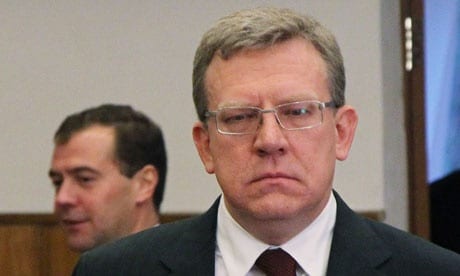
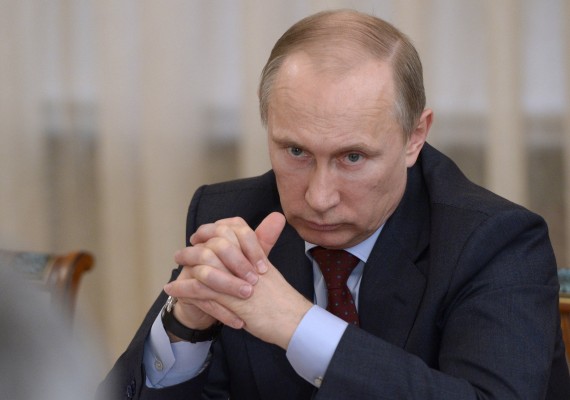
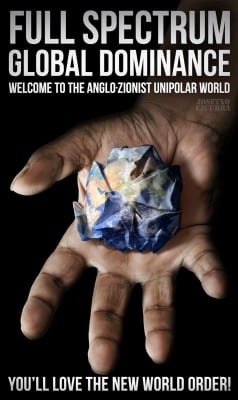
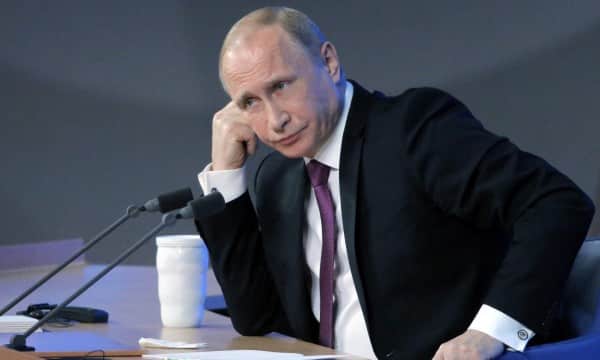
 The forgotten lady who gave her life for Cuba
The forgotten lady who gave her life for Cuba
